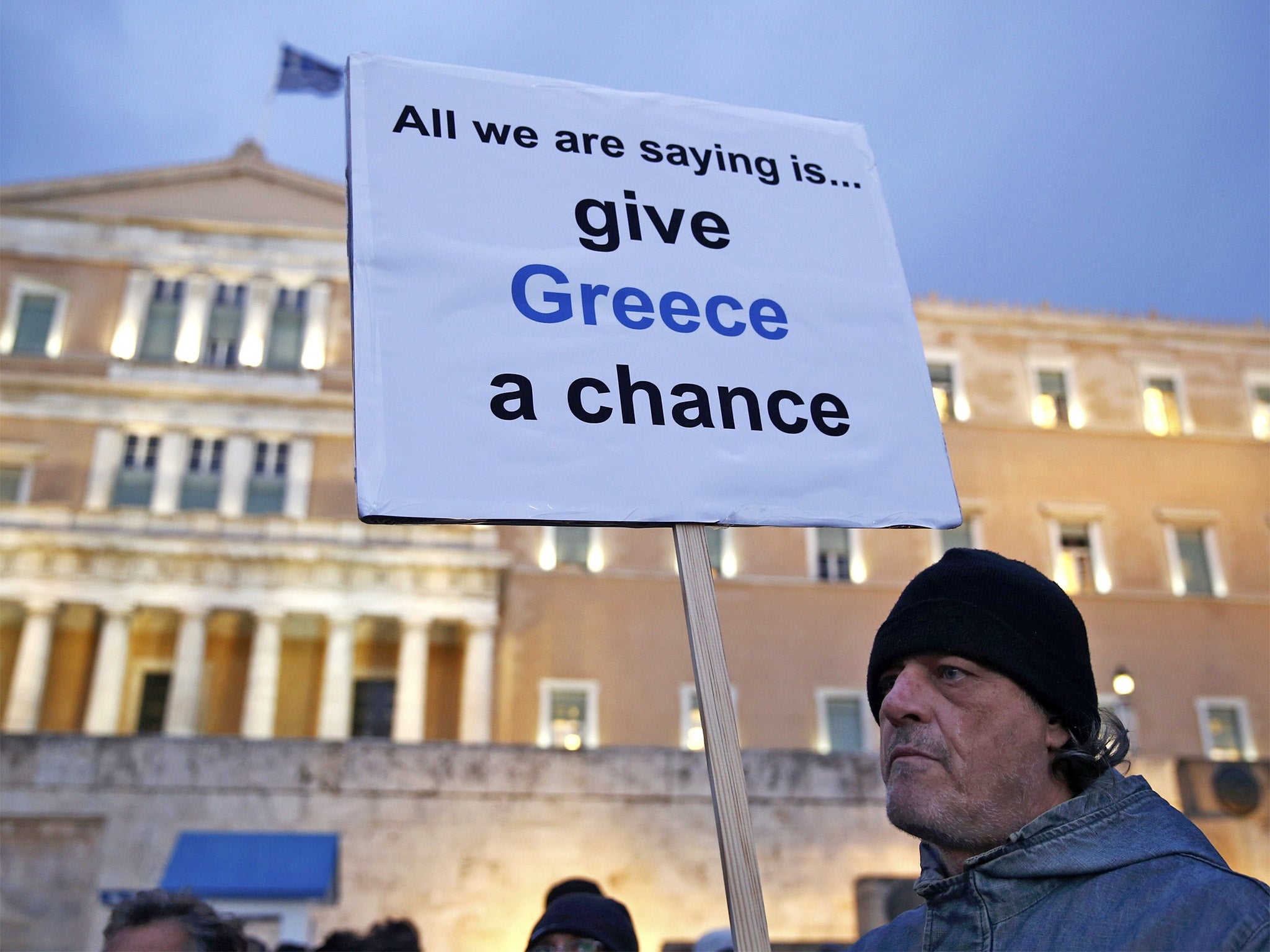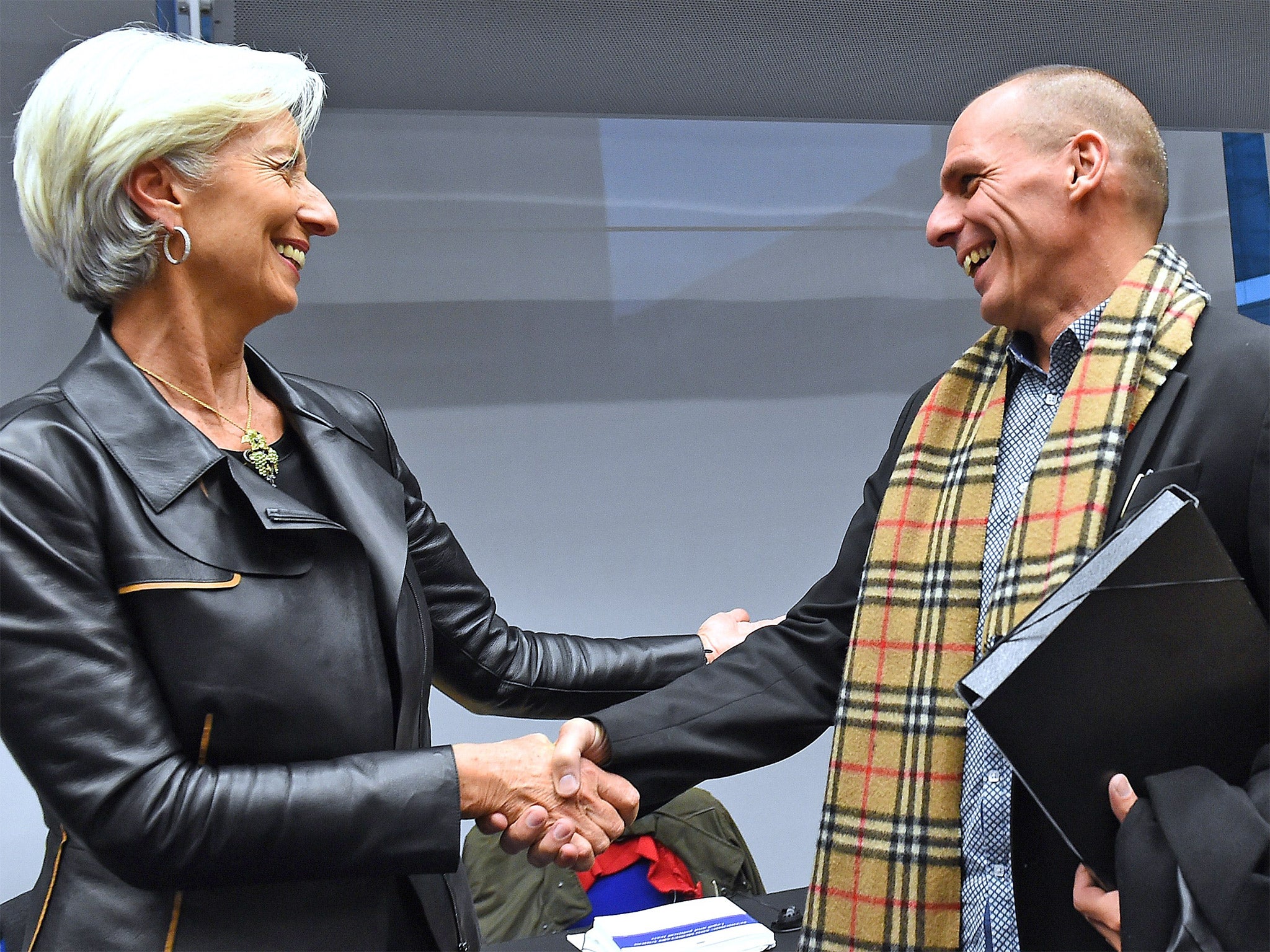Greek debt: Combative start to crunch talks between Greece and its eurozone creditors
Since Syriza's victory in the polls last month, both sides have dug in over the renegotiation of Greece's €240bn bailout which Athens wants to dismantle

Your support helps us to tell the story
From reproductive rights to climate change to Big Tech, The Independent is on the ground when the story is developing. Whether it's investigating the financials of Elon Musk's pro-Trump PAC or producing our latest documentary, 'The A Word', which shines a light on the American women fighting for reproductive rights, we know how important it is to parse out the facts from the messaging.
At such a critical moment in US history, we need reporters on the ground. Your donation allows us to keep sending journalists to speak to both sides of the story.
The Independent is trusted by Americans across the entire political spectrum. And unlike many other quality news outlets, we choose not to lock Americans out of our reporting and analysis with paywalls. We believe quality journalism should be available to everyone, paid for by those who can afford it.
Your support makes all the difference.The showdown between the new anti-austerity Greek government and its EU creditors got off to a combative start as Greece’s Finance Minister, Yanis Varoufakis, arrived in Brussels to a chorus of demands that the country stick to its bailout programme.
Since the far-left Syriza party’s victory in the polls last month, both sides have dug in over the renegotiation of Greece’s €240bn bailout which Athens wants to dismantle. Germany in particular – Europe’s chief cheerleader of austerity measures – has rejected suggestions that Greece can renege on any of its debt.
Mr Varoufakis presented the country’s demands to the 18 other finance ministers in the eurozone today, ahead of the 28 February deadline when Greece’s current bailout programme expires.
The demands are believed to include bridging loans and a grace period of around six months so that Greece can continue to access the markets as it negotiates a new deal with its creditors.
It wants some of the austerity measures attached to its bailout scrapped, while in an interview with the German magazine Stern, Mr Varoufakis also suggested a write-off because “if a debt can no longer be paid off, then that leads to a haircut”.

He was tight-lipped as he arrived in Brussels for talks with the other eurozone ministers and the heads of the International Monetary Fund (IMF) and the European Central Bank (ECB), saying only that he was confident of “a very productive meeting” and that he wanted Greece to remain in the eurozone.
Other eurozone finance ministers and officials made clear that the only starting point for talks was the existing bailout programme agreed with the IMF, ECB and the European Commission – known collectively as the Troika.
“We need the Greek government to understand that commitments have to be respected,” said Pierre Moscovici, the EU’s economics commissioner. “This programme is the reference, the anchor, the basis on which we work.”
Germany’s Finance Minister, Wolfgang Schaeuble, said the existing programme “has to be completed, or there is no programme”. However, Greece says it can’t extend a deal which it fundamentally disagrees with, and has demanded an end to the Troika in its current format.
In Athens, thousands of Greeks took to the streets to support their new anti-austerity government. Standing in front of parliament, protesters unfurled banners reading “Bankrupt but Free” and “Stop Austerity, Support Greece, Change Europe”.
The Greek Prime Minister, Alexis Tsipras, tweeted a picture of the Athens protest, saying: “In the cities of Greece and Europe the people are fighting the negotiation battle, They are our strength.”
The clock is ticking: Greece’s current bailout programme ends at the end of February. If no new deal is agreed by then, the final tranche of its bailout money will be withheld, access to the markets cut off, and the country won’t be able to pay its debts – the first step toward an exit from the euro.
All sides have insisted that Greece should stay in the eurozone – but that appears to be the only area of common ground. Given the gulf, the discussion was expected to be a starting point, with no agreement until another eurozone finance ministers’ meeting on Monday.
“Tonight it’s about politics – the noble sense of the art of politics is to understand each other and to enter into a working process,” Mr Moscovici said.
Join our commenting forum
Join thought-provoking conversations, follow other Independent readers and see their replies
Comments